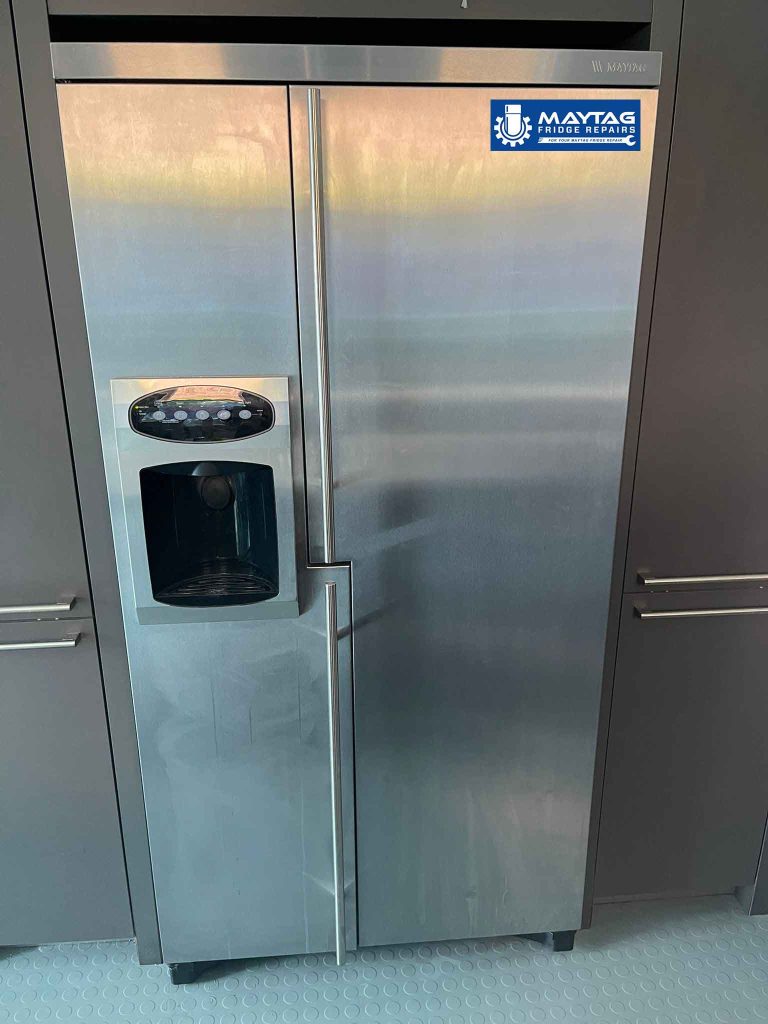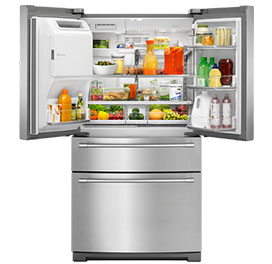Why Your Maytag Refrigerator Freezer Is Cold But Refrigerator Is Warm
When your Maytag refrigerator freezer is cold but the refrigerator is warm, there are several potential causes for this issue. Let’s explore some possibilities and incorporate the provided keywords.
1. Blocked airflow
One common reason for this problem is a blocked airflow between the freezer and refrigerator compartments. Excessive food containers or too much food can impede the airflow and lead to uneven cooling. Check if there are any items obstructing the vents or air passages. Clearing any obstructions will ensure proper airflow.
2. Damaged or faulty evaporator fan
The evaporator fan plays an important role in circulating cold air from the freezer to the refrigerator section. If the fan is defective or the motor windings are faulty, it may not operate as intended, resulting in the refrigerator section not receiving adequate cooling. Inspect the fan and listen for unusual noises such as unusually noisy operations. If necessary, consult the user manual or contact a professional technician to replace the fan.
3. Defective defrost system
A malfunctioning defrost system can lead to frost buildup on the evaporator coils. If there is excessive frost accumulation, it can block airflow and prevent the refrigerator section from cooling properly. Inspect the evaporator coils for frost buildup, particularly the thermistor, which is responsible for monitoring the coil temperature. If the thermistor is defective, it may not signal the defrost system to activate. Consider contacting a technician to diagnose and fix the issue.
4. Expired or old items
Sometimes, the presence of old or expired items in the refrigerator can release moisture, leading to frost buildup and inadequate cooling. Check for any outdated or old food items that might be affecting the overall temperature. Remove any items that are no longer fresh to ensure optimal cooling.
5. Compressor problems
The compressor is the heart of the refrigeration system, and a system failure within it can cause cooling imbalances. Listen for unusual noises, such as unusually noisy or rattling sounds, coming from the compressor. Additionally, check if there is electrical continuity in the motor windings. If there are concerns about the compressor, it’s best to seek professional assistance as compressor repairs require specialized knowledge.
Remember, these are potential causes, and it’s always recommended to consult the user manual or contact a professional technician for an accurate diagnosis and proper repair of your Maytag refrigerator.

Refrigerator Is Overloaded
When the refrigerator is overloaded, it can lead to cooling issues in both the freezer and refrigerator compartments. Let’s explore how an overloaded refrigerator can impact various components and incorporate the provided keywords.
1. Freezer Compartment
An overloaded refrigerator can disrupt the airflow within the freezer compartment. When there is too much food packed tightly together, it can restrict the airflow, hindering the cooling process. This can result in inadequate cooling in the freezer compartment and subsequently affect the refrigerator section as well.
2. Refrigerator Compartment
Similarly, an overloaded refrigerator can also affect the airflow in the refrigerator compartment. When there are too many food containers or items crammed into the refrigerator, it can obstruct the proper circulation of cold air, leading to warmer temperatures inside.
3. Refrigerator Coils
Overloading the refrigerator can also impact the efficiency of the refrigerator coils. When there is excessive food or clutter near the coils, it can impede proper heat dissipation. This can cause the coils to become inefficient at transferring heat, resulting in reduced cooling performance in both the freezer and refrigerator compartments.
4. Defrost Heater Assembly and Defrost Control Board
If the refrigerator is overloaded, it can put extra strain on the defrost system. The defrost heater assembly, responsible for melting frost and ice on the evaporator coils, may struggle to keep up with the excess frost buildup. Additionally, the defrost control board, which regulates the defrost cycle, might face challenges in effectively managing the increased workload.
5. Air Damper Control
An overloaded refrigerator can also affect the proper operation of the air damper control. The air damper control is responsible for regulating the amount of cold air that enters the refrigerator compartment from the freezer. If the refrigerator is overloaded, it can potentially block the air damper control, preventing it from opening and allowing sufficient cold air circulation.
It’s essential to avoid overloading the refrigerator to ensure optimal cooling performance. By maintaining a balanced and organized refrigerator, you can facilitate proper airflow, prevent strain on components such as the defrost system and air damper control, and help maintain ideal temperatures in both the freezer and refrigerator compartments.
Have you overpacked the freezer?
Have you overpacked the freezer? It’s important to consider the impact of an overloaded freezer on the overall performance of your refrigerator. Let’s explore how this can affect different components, incorporating the provided keywords.
1. Air Damper Control Opens
When you overpack the freezer, it can potentially obstruct the proper operation of the air damper control The air damper control is responsible for regulating the airflow between the freezer and refrigerator compartments. If the freezer is excessively filled, it can block the air damper control, preventing it from opening fully. This restriction hampers the circulation of cold air into the refrigerator, leading to warmer temperatures in that section.
2. Defrost System Failure
Overpacking the freezer can also place strain on the defrost system. If the freezer is overloaded, it becomes more challenging for the defrost system to effectively remove frost and ice buildup from the evaporator coils. As a result, the coils may become insulated with excessive frost, impeding the heat transfer process. This can lead to inadequate cooling in both the freezer and refrigerator compartments.
3. Refrigerator Door
When you overpack the freezer, it can inadvertently impact the proper sealing of the refrigerator door. Excessive items in the freezer can put pressure on the door, causing it to not close properly. A compromised door seal allows warm air to enter the freezer, leading to increased frost accumulation and potentially affecting the cooling performance of the entire refrigerator.
4. Defrost Components
An overloaded freezer can make it difficult for the defrost components to function optimally. The excess food and items can obstruct the defrost heater assembly, making it less effective at melting frost on the evaporator coils. Additionally, the presence of too many items in the freezer can hinder the movement and operation of the defrost control board, affecting the timing and duration of the defrost cycle.
To ensure proper functionality and optimal cooling performance, it’s essential to avoid overpacking the freezer. Maintain a reasonable amount of items, leaving enough space for proper airflow and efficient operation of the defrost system. This will help maintain the ideal temperature balance between the freezer and refrigerator compartments while preventing strain on the air damper control, defrost components, and the refrigerator door.


